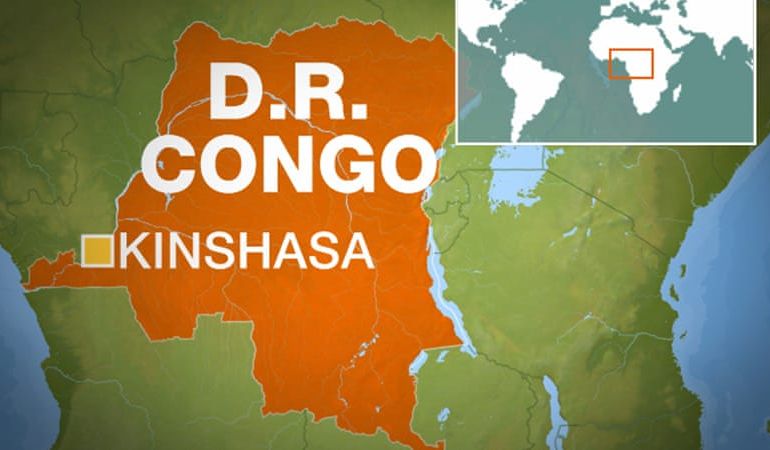DRC police break up protests as political tensions rise
Rallies triggered by National Assembly decision to appoint Ronsard Malonda as chairman of electoral commission.

Police in the Democratic Republic of the Congo (DRC) have fired tear gas to break up demonstrations in major cities triggered by plans to name a new head to the country’s election panel.
The protests on Thursday took place a day after Interior Minister Gilbert Kankonde banned all rallies across the DRC, citing the risk of coronavirus infection.
In the capital, Kinshasa, hundreds of members of President Felix Tshisekedi’s Union for Democracy and Progress (UDPS) were dispersed near the seat of parliament after a three-kilometre (two-mile) march, AFP news agency reported.
A similar-sized rally in Lubumbashi, the second-largest city located in the country’s southeast, was broken up by police and troops who used tear gas or fired live rounds into the air.
In Kananga, a UDPS stronghold in the central region of Kasai, three demonstrators suffered gunshot wounds when security forces clamped down on a demonstration outside party headquarters, according to AFP.
Other protests were reported in south-central Mbuji-Mayi, the eastern city of Beni and in Kisangani, in the northeast.
The demonstrations were sparked by a decision by the National Assembly, which is dominated by supporters of former President Joseph Kabila, to appoint Ronsard Malonda as the chairman of the independent national electoral commission, CENI.
Critics say Malonda, currently CENI’s secretary-general, has played a historic role in rigging elections in favour of Kabila.
Tshisekedi, who has to govern in coalition with Kabila supporters, has not yet approved Malonda’s appointment.
Tshisekedi took office in January 2019 in the country’s first peaceful political transition.
But he did so after elections rocked by accusations that the results were rigged to deny Tshisekedi’s rival, Martin Fayulu, victory.
Kabila stepped down after 18 years in power but remains influential behind the scenes through his parliamentary majority and control of most cabinet ministries and the prime minister’s office.
The coalition was rocked last month over judicial reforms put forward by Kabila allies that would define the powers of judges – a move that critics say is a ploy to muzzle the judiciary.